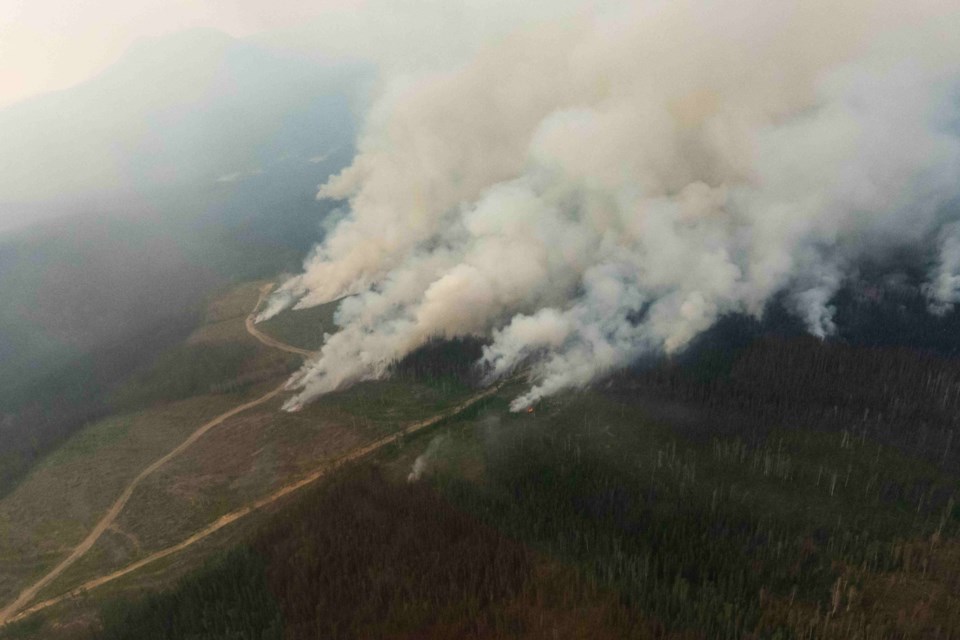The province is currently fighting the third-worst fire season on record in terms of hectares burned, with most of the activity focused in the northeast.
B.C. has just surpassed one million hectares burned across the province, but the fire activity has been predominantly focused in the Prince George Fire Centre, which stretches from Quesnel to the Yukon and Northwest Territories border.
“Crossing over the 1 million hectares threshold this yearly in the season is quite significant,” said Cliff Chapman, BC Wildfire Service (BCWS) director of wildfire operations, in a provincial update.
So far this season 1,044,503.042 hectares have burned across B.C. in 634 wildfires, and the Prince George Fire Centre has been responsible for dealing with 1,030,978.275 hectares of those fires.
The worst fire year on record currently is 2018, with 1,354,284 hectares burned in 2,117 fires.
“We are in early July, so we have the potential for the hot and dry months of July, August and into September to see even more fire in the landscape.”
Chapman said ahead of the long weekend, the BCWS sent out information and saw 45 new fire starts, the majority of which were caused by lightning, but because of public reporting, they were able to get 35 of those fires into “being held” or “out”.
“Human-caused prevention is a critical piece as we move into warming and drying conditions that we've seen already two or three times this spring,” added Chapman.
“We need to expect that July and August could be hot and dry for the entire two months.”
He said the north and, in particular, the northeast has been extremely impacted by wildfires this season, which started early in April and has not had a break since.
“There’s been days where there has been a little bit of rain but not nearly enough to have an impact of fires that have been on the landscape,” said Chapman.
He said he encourages everyone to be extremely cautious as it’s anticipated that fire on the landscape will begin to spread from the north to the south with anticipated lightning each day.
When asked if this season has the potential to be the worst fire season on record, Chapman said he would be willing to say there is potential “that we will burn the most hectares ever recorded in B.C.’s History this year given we are already over 1 million and we are just entering into our core fire season now.”
However, he noted that is from a hectares burned perspective.
“But in terms of impacts from those fires, we really won’t know until we get through the next couple of months.”
Chapman also noted that earlier in the season, the northeast did see some significant impacts in terms of significant evacuation orders and alerts in rural and more populated communities in the north, whether that was Fort St. John, McBride or other rural, remote, and First Nations communities.
He said further impacts will be dependent on where the lightning tracks and making sure that the BCWS is detecting fires as quickly as possible.
“That’s another call to the public to call in smoke as you see it, and we will respond to it,” said Chapman. He stressed that anyone who sees a potential wildfire should call *555 to report it, even if you think the fire may have already been called in.
International resources are also arriving in the Prince George Fire Centre to give local crews some respite. Chapman said there are 60 firefighters on their way to the Prince George Fire Centre from the United States and another 100 coming from Mexico.
“Those resources will help support our entire suppression efforts in the north, allowing us to rest our own staff and allowing us the ability to have preparedness resources ready for new starts.”



